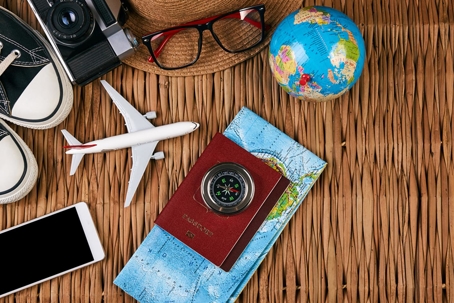Understanding Your Rights Here and Abroad
When planning a vacation, travel and tourism law is probably the furthest thing from your mind. Websites and brochures filled with beautiful images entice us to place deposits, book airline tickets, and start packing right away. Travel and tourism laws come to the forefront, however, when the destination ends up less beautiful than at first thought.
The United Nations’ World Tourism Organization describes travel and tourism law as a type of regulatory framework for proper management and development of tourism activities. The goal is to protect natural resources and community culture, while at the same time protecting travel consumers’ rights.
Travel and tourism laws protect more than just travelers’ rights, however. This broad field of regulation frequently involves:
- Contracts
- Tourism and hospitality procedures
- Employment issues
- Regulatory and agency compliance
- Antitrust rules
- Knowledge of certain international treaties
Uniform enforcement of tourism laws is often difficult, however, due to the sheer volume of tourists. Poorer countries frequently lack the resources to protect tourists from unscrupulous businesses or criminals who prey upon foreign visitors.
“Seller of Travel” Laws
Tourism is big business in Florida, with more than one million visitors in 2017 and an economic impact of over $100 billion in 2016. The tourism industry employs more than 1.4 million people statewide.
Florida is among several states that maintain “seller of travel” laws—the other states include Iowa, Hawaii, Nevada, California, and Washington. These laws require anyone who provides travel-related services to register with the state. Businesses must also display their registration number on their advertising to potential clients. The purpose of such a law is to protect travelers from fraud or exploitation.
Three Common Travel & Tourism Laws
1. Lost or damaged luggage is one of the most frustrating issues travelers face abroad. What many travelers don’t realize, however, is just how complex handling lost luggage can be; depending on the case, luggage issues can involve the Department of Transportation, the federal government, or even international treaties.
2. Consumer disclosure notices—sometimes referred to as disclaimers—protect tourism businesses by clearly outlining any risks to consumers. Geared toward the adventure travel industry, these documents include clauses regarding:
- Assumption of risks
- Limitations of liability
- Acknowledgment of risks
In general, consumers are less likely to be protected when they knowingly engage in high-risk behavior; it is important for business to provide, and consumers to thoroughly understand, a full accounting of the risks inherent to a particular activity, destination, or event.
3. The full-fare advertising rule applies to ads that quote a specific price or that include airfare in a tour package price. The price advertised is the price the consumer must pay—if the cost of the ticket is more than the advertised price, then the advertisement is in violation of the full-fare advertising rule.
Call The Florida Law Group if You Were Cheated During Your Vacation
Traveling, whether for business or leisure, provides you with the opportunity to experience new places, cultures, people, and ideas. Whether it’s within your own state or an international trip, a change of scenery should always be a positive experience; while travel is not without challenges, there is nonetheless no place for needless risk. Travelers need to be aware of common pitfalls, including:
- Misrepresented lodging
- Adventure attractions with no disclaimers
- Lost or damaged luggage
- An increase over advertised airfare prices
If you’ve encountered experiences like these on a business trip or vacation experience, call (833) 899-0310 to discuss how you may be entitled to compensation. The Florida Law Group has decades of combined experience defending the rights of American travelers both at home and abroad. For a free case review with one of our skilled associates, call or online today.

